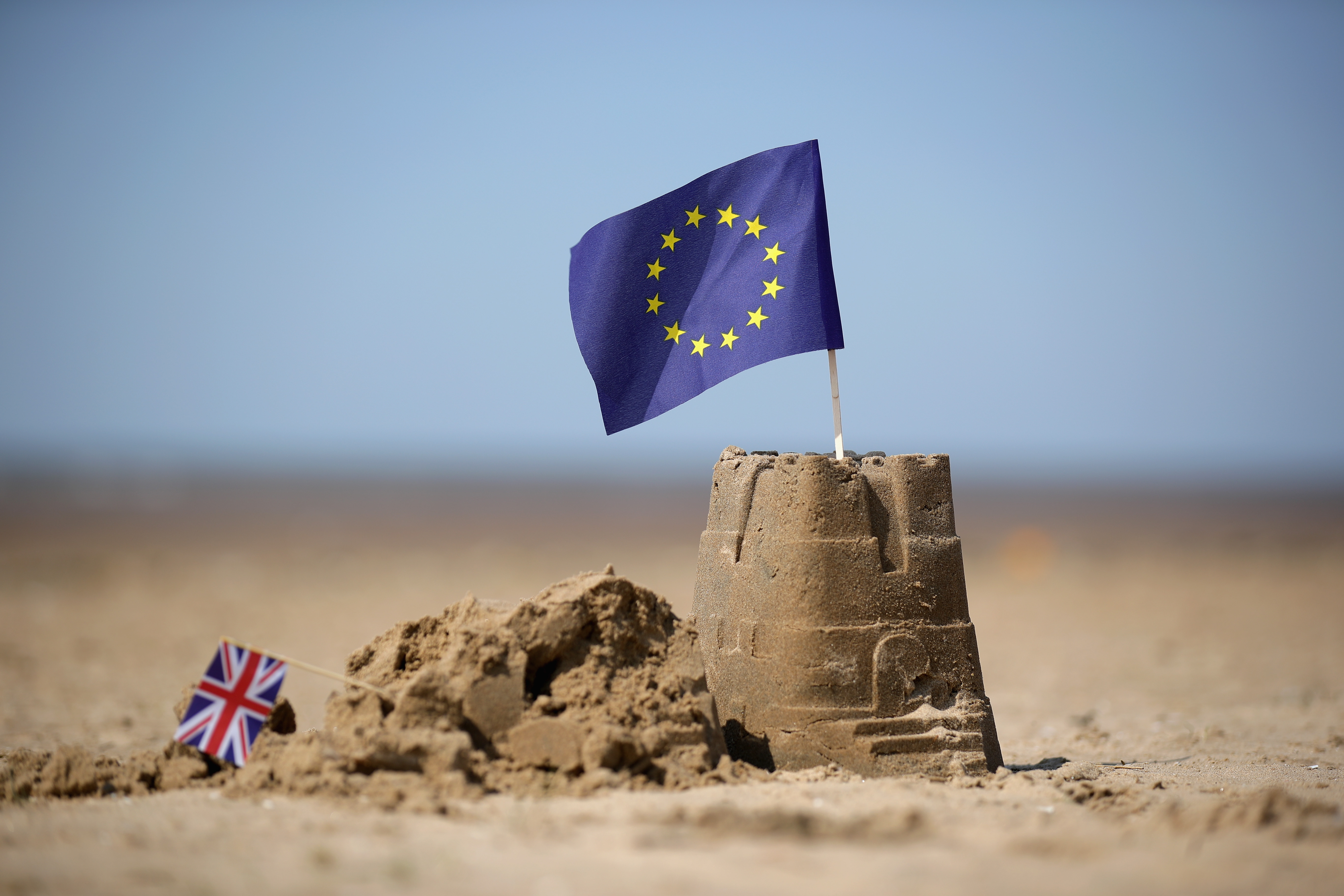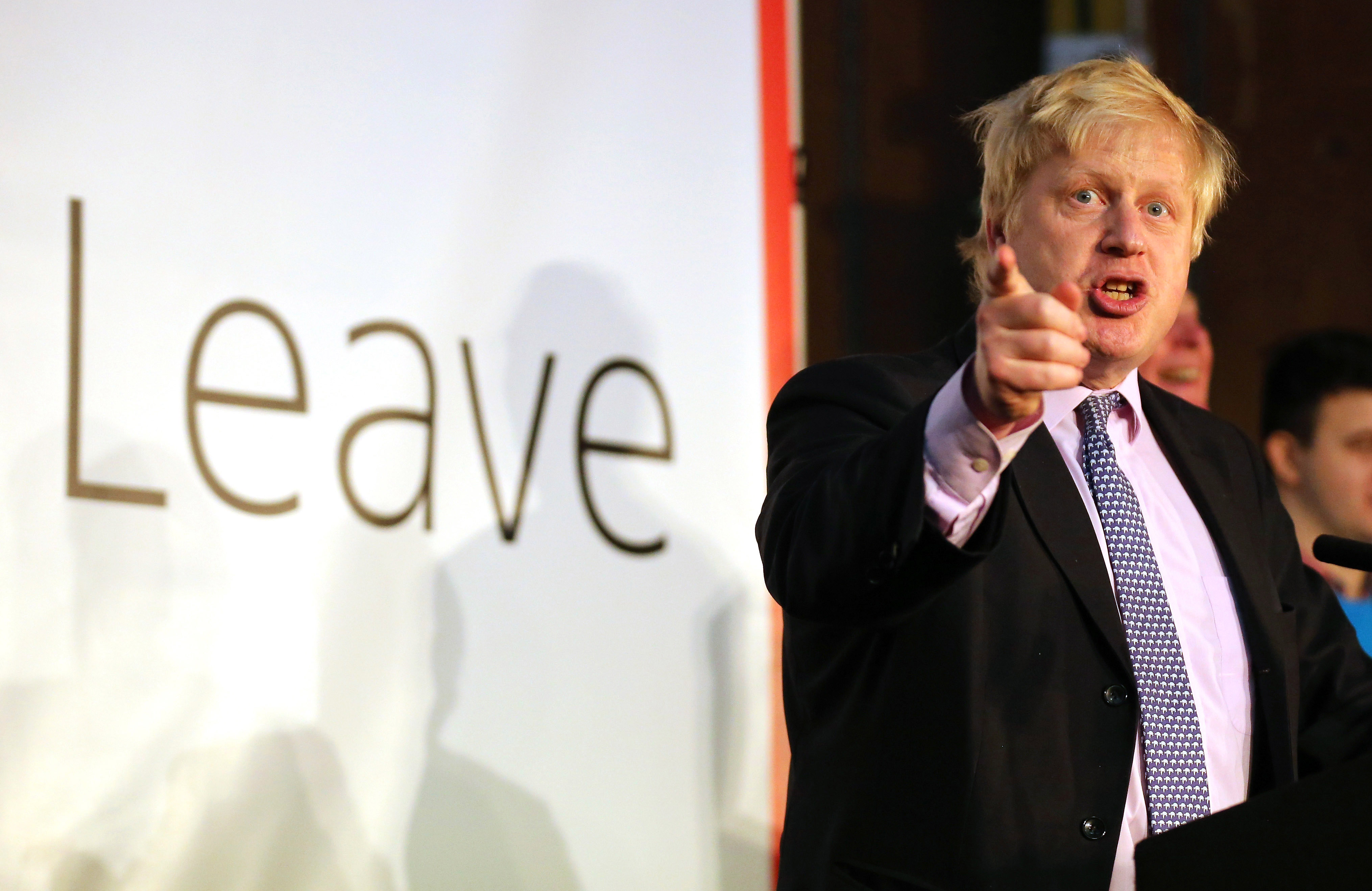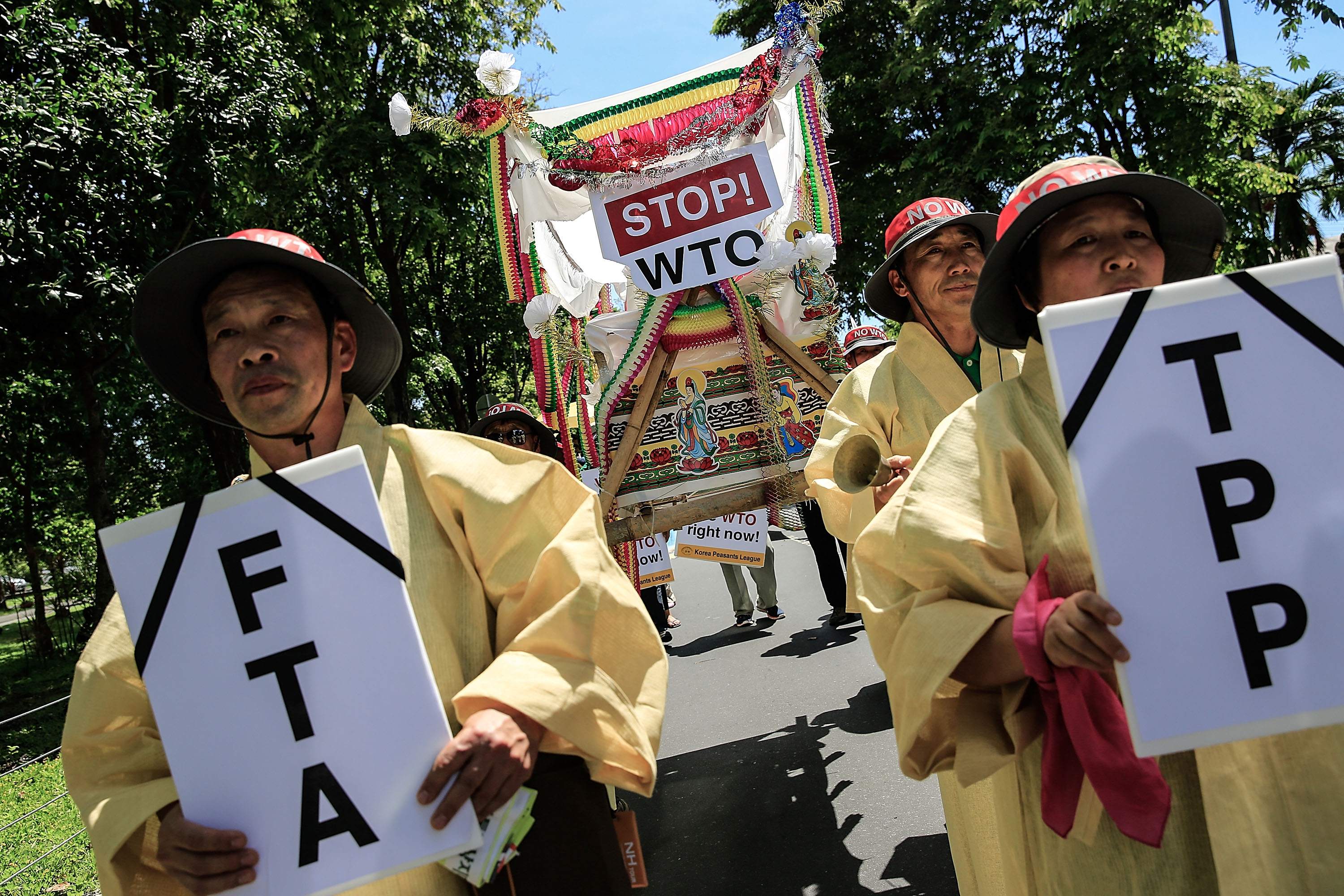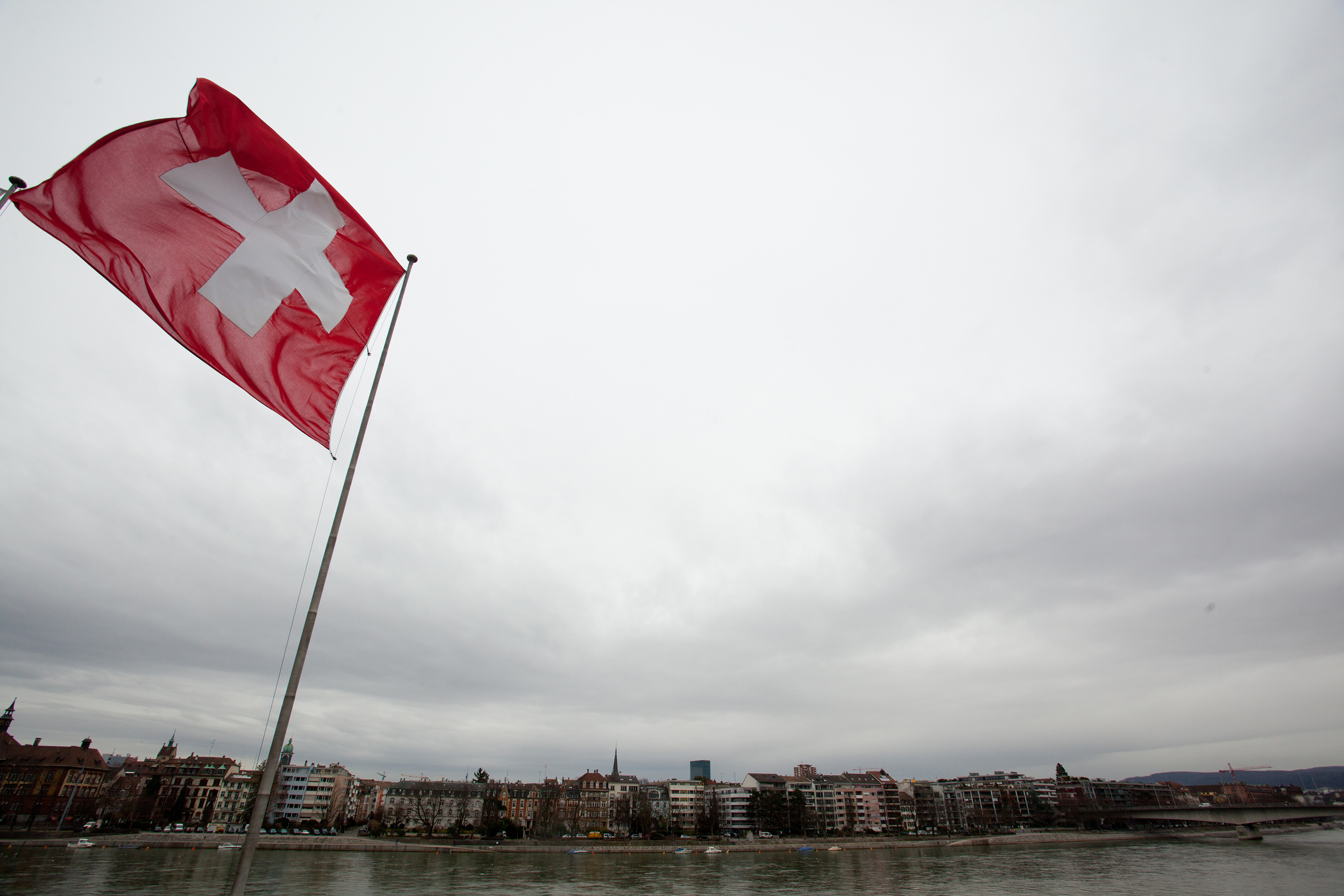Longread: What happens after Brexit

Weeks after the vote, the fog has decidedly failed to lift.
Brexit could mean anything from the loss of the majority of our environmental regulations to almost nothing. Voters may have made a decision in principle, but they’ve left politicians to sort out the details, so how could this play out?
Stalemate – ultimately unsustainable
Many Brexiteers and most ex-Remainers don’t want to trigger Article 50 until we’ve negotiated a deal.
That would be a pretty good plan for the UK – so good, it might then encourage other countries who are contemplating leaving.
Unsurprisingly that means no EU leader wants to negotiate until (or unless) we trigger Article 50. This game could go on for some time and become a semi-permanent situation.
This stalemate in which the UK stays in the EU – but with the constant threat of leaving – will still change things.
To begin with, investment in the UK will be hit by uncertainty. How can you invest in, say, manufacturing something for export if you don’t know what trade deals the UK will have?
Investments that are made may prove more expensive for two reasons:
First, the weaker pound will make it more expensive to buy kit, for things such as offshore wind farms. Second, the uncertainty in the financial markets will make it more expensive to borrow money.
The UK will also have far less influence over EU policy-making on climate and the environment.
That means less of a say over upcoming EU rules on issues such as air pollution and even shale gas, but also over the climate agenda.
Enforcement of EU rules – for example on air pollution – may also suffer as it may prove impractical to bring cases to EU courts under rules which are subject to near-term change.
At the same time new rules – such as a new directive on air pollution – may simply not be transposed into UK law.
Governments, mayors and local authorities will feel under less pressure to comply with EU directives, including existing renewables targets, as well as rules around pollution and possibly even state aid – knowing that by the time any enforcement action is taken the rules may have changed.

That said, if the stalemate becomes entrenched, and the notion that the UK will only leave under certain conditions grows, the investment climate could improve.
Ultimately a stalemate cannot last forever.
It is possible that upcoming French and German elections and a parallel stalemate in EU-Swiss relations may change how the EU itself works.
The rules on free movement may change, or a ‘two speed’ Europe could be created, changing the equation for UK voters and allowing some kind of ‘Brexit-lite’ within the EU.
More likely the UK will wind up triggering Article 50 before these votes take place.
Single market – regulations remain intact
Assuming a stalemate does not last indefinitely, a UK exit from the EU and into a likely modified form of the European Economic Area (EEA) is one possibility.
Broadly this means membership of the European Single Market and abiding by most – though not all – of the EU’s rules, including paying in.
It’s very difficult to ascertain exactly what this option would mean because the main example – Norway – negotiated its deal under totally different circumstances (it was trying to join not leave), and this was decades ago.
The UK would very likely strike a “bespoke” agreement which may be more or less like being in the EU than Norway’s deal.
It’s likely that the majority of the EU’s climate, renewables, pollution and environmental directives which currently apply to the UK would continue to apply – as would the power of an (albeit different) EU court to apply those directives.
Other rules would also remain in force, such as rules on state aid which have hampered the development of Hinkley and the bailout of Tata steel and UK trade deals would continue to be made through the EU.
That means the UK’s deal with the US would be TTIP, not a separate “bilateral” deal.
The UK would not be able to influence these deals or what directives the EU sets, which means – ironically – that it may be subject to more, rather than less, rigorous rules on things like renewables and shale gas regulation.

There are some EU rules which are less likely to be included in a new UK deal, for the simple reason that they do not apply to Norway and are seen as “non-trade” directives and also EU funding for protected areas.
These include the Common Agricultural Policy (CAP), Common Fisheries Policy (CFP) and rules around the protection of nature, birds and habitats.
The CAP and CFP would need to be replaced in UK law whilst protection for nature, birds and habitats may remain but would need to be reframed.
There is no reason to think the Norway deal would look very much like Norway’s – Former Norwegian diplomat
Norway is also not part of the EU’s customs union, meaning it has autonomy over domestic levels of VAT (which are far higher).
If that is what is implemented in the UK it’s important to note the secondary impacts. UK energy firms exporting to the EU will face higher trading costs due to the rules on VAT.
Free from the CAP the UK would, for the first time in decades, be free to craft its own policies on land-use and could redirect funding towards environmentally friendly initiatives such as rewilding. It could also develop a more UK-focused comprehensive nature law.
The only snag is that UK law is, by its nature, easy to change. We lack a US-style system of checks and balances or strong, independent, environmental regulators, so however great our new policies are they would still lack the long term protection afforded by multilateral agreements and international courts.
This whole discussion though is a little academic; the UK is simply not in the same negotiating position as Norway.
“It is really very difficult to predict because we do have this model but it was introduced in a very specific set of circumstances and for very particular states, small economies, small states where the stakes are low,” said Professor Panos Koutrakos from City University.
If it has triggered Article 50 the UK would also be under the gun, with just two years to secure a deal or face the prospect of no deal at all – Norway’s deal took much longer than 2 years to emerge.
What that means is that there is no good reason to suppose the UK’s “Norway deal” would actually look all that much like Norway’s. The UK could be subject to far greater – or weaker – environmental regulations depending on how high up or low down such things are in the negotiations.
Former Norwegian diplomat and Bellona Europe director Jonas M. Helseth told Unearthed:
“For the UK, as I pointed to in my pre-referendum Independent piece, is not likely to get a deal that was designed for those who planned to join. After all, it just gave the EU a kick in the teeth. No EU leader would want to be seen to give great concessions to Britain now, as that would just fuel populist calls for a similar referendum in other places. So I expect they will play hardball.”
Full Brexit – bonfire of green tape
Which is why the emerging political consensus is that the UK will have to leave the single market in order to impose its own rules on migration whilst – at the same time – trying to negotiate a new free trade deal with the EU.
In that scenario it seems possible that a temporary deal to retain access to the single market for a fixed number of years would be agreed, in which case one would expect that “Norway-style” rules would continue to apply.
But what happens when that ends.
In such a scenario the UK’s trading relationship with the EU would be governed by World Trade Organisation (WTO) rules, as both the UK and the EU are members of that body.
All EU directives on nature, water, pollution, energy, climate and the environment would immediately cease to apply as would the jurisdiction of EU courts and state aid rules – though many of the rules may remain in UK law unless and until they are repealed.
The UK’s future energy and climate policy and its environmental protections would be down exclusively to decisions made by national governments and existing laws on air pollution, beaches, water, fisheries, agriculture, national parks, planning, environmental impact assessments, habitats, chemicals and much else would need to be checked and possibly reworked to remove their enmeshment with EU structures.
As with the single market option, you can’t predict what this would mean. It could mean either a bonfire of green-tape or a brave new world of rewilding and habitat protection.
What we do know is that this reversion to the “default” UK constitution – last seen sometime in the 1960s – would have a dramatic and relatively little-reported impact on the enforcement and stability of rules around climate and environment in the UK.
Freed from multilateral deals UK rules on natural protection could be changed with the political and economic weather.
There would also be less incentive to act on global (as opposed to UK-specific) environmental concerns. The great crested newt is endangered in the EU as a whole, but we have lots in the UK, so leaving the EU would likely be bad news for the newt.
There are also impacts on the sustainability of the goods we import as the UK would be free to strike it’s own trade deals with the rest of the world.

Those deals may not include the same environmental protections and quality standards insisted on by the EU not least because the UK would be in far weaker negotiating position.
Indeed much will depend on how much pressure is put on the UK side of the negotiations by those who have previously railed against the US-EU TTIP deal.
But there are major economic downsides to this scenario.
UK exports to China, Japan and the US would not be affected, and could indeed be subject to new trade deals.
But when it comes to the EU and the other 30 countries with which the UK has trade deals through the EU, we would revert to far less favourable terms than we currently have – including steep tariffs on some goods and an end to our current “financial passporting” rights giving us access to the single market for our financial services industry.
The public is adopting an increasingly hostile stance to free trade agreements – Christian Bluth
The treatment received by UK banks in the EU is far more generous than would be the case under WTO rules, according to sources familiar with the issues.
In fact – they note – the whole issue is unprecedented in the history of the organisation so predicting how the process may unfold is almost impossible.
And those negotiations may include demands by the EU on the environment and agriculture.
The environment, for example, is covered by exemptions in the WTO framework which allow member states to adopt trade-related measures to enforce the protection of humans, animals and plants.
The exemption – called GAT Article 20 – first emerged in 1947 before the WTO even existed. It is referenced in the EU’s deals with Canada and the US, but it has not been substantially tested.
In the case of agriculture the EU has high ceilings for allowable subsidies and imposes many quotas. How these would be divided up, even outside the CAP, we don’t know.
Leading Brexiteers have often advocated what they call the “Canada option”, a deal the EU signed with Canada which reduced barriers to trade in most areas without implementing free movement of labour.
That deal comes with almost no environmental caveats other than common product standards, e.g. toasters made so they don’t breach EU efficiency rules or kill people. Even those standards are not especially strong; they cover the final product but not the process of making it.
But that deal did not include financial services and, crucially, was with Canada, not another European country.
“The agreement with Canada was done because there was a mutual understanding that signing a free trade agreement was beneficial for the two sides.,” noted Marco Incerti from the Centre for European Policy Studies.
The EU would be under no obligation to sign a similar deal with the UK and given the situation the existence of large eurosceptic movements in other EU countries who may be emboldened by such a move.
Indeed many believe the era of the comprehensive trade deal is now over.
“The EU and Canadian government Negotiated CETA for 7 years and the whole thing is still not implemented,” said Christian Bluth from the German Bertelsmann Foundation.
“What we see with CETA and TTIP is that there is presently a mood swing in continental Europe and the public is adopting an increasingly hostile stance to free trade agreements.”
“Even if all negotiators agree.. You would have to get this through 27 national parliaments, there is uncertainty over whether the EU will be able to conclude deep deals in future”.
The Swiss option – environmental rules by negotiation
Switzerland was part of the same process as Norway, but never joined the EEA and instead remained a member of the European Free Trade Association (EFTA) – which the UK helped to found before it joined the EU.
The problem is that EFTA hasn’t really evolved since then, so in order to to gain full access to the EU’s single market Switzerland has had to negotiate a series of bilateral agreements.
Right now, the smart money in Europe is that this is where the UK may be forced avoiding the free movement that comes with the single market, the economic losses of no deal and the pain and complexity of trying to pass one single comprehensive deal.
It’s possible the EU would ask for certain guarantees in terms of environmental protections – Najy
Though in theory the deals Switzerland has signed are separate, many are in practice linked by clauses suggesting that a breach of one invalidates others.
The whole process was a tortuous negotiation, in which both sides made demands of the other.
“You have to look at what happened historically,” says Cenni Najy from the department of political science and international relations at the University of Geneva.
“The Swiss came with 18 issues they wanted to address and out of these 18 only 7 were addressed in the first package.”
And it’s not just one-way in this kind of negotiation the EU also brings things to the table:
“If you look at what happened in the Swiss EU negotiations some agreements were in favour of the EU and some in favour of Switzerland”.
In the case of Switzerland the EU has insisted on free movement of labour and rules over tax – but Switzerland already has strong environmental rules and tends to to adopt most EU standards. The UK may be different.
“It’s possible the EU would ask for certain guarantees in terms of environmental protections,” says Najy.
Which rules would depend on the priorities of the EU negotiators and the weakness of the UK’s own negotiating position. Even fishing and agriculture may be included in the mix.
“You would assume they would have to implement the fisheries policy,” said Incerti.

The Swiss didn’t only agree to free movement of labour. They also pay into the EU – albeit at a lower rate than Norway and the UK.
You pay less, you get less. The Swiss have not been offered financial service “passports” to other EU countries which is why most Swiss banks have major offshoots in, well, in London actually.
For climate and the environment therefore a Swiss solution would be similar to a Norwegian one – though there may be differences.
For example the Swiss are not currently signed up to EU energy and climate targets, though they are signed up through the UN process.
The UK, on the other hand, which currently imports significant amounts of power from the EU may be keen on a bilateral deal to join a common EU energy market. If it does so shared energy targets may be the EU price.
Shared research funding, collaboration on toxic chemicals and access to the EU’s market in financial services would all be on the agenda for the UK – beyond simple negotiations over tariffs. The EU would bring it’s own counter-proposals.
There is a BIG problem with the Swiss option: Switzerland just voted, through another referendum, to put a cap on levels of immigration.
This has tested the somewhat notional absolute sovereignty some Swiss politicians claim they have. The EU has suspended talks about cooperation on research funding and suggested the vote may breach EU-Swiss treaties. It’s also stalled Swiss efforts to join with EU energy collaboration.
Switzerland is now facing its own acrimonious Swexit, at considerable cost to its economy. Many think the two problems may be dealt with together by EU officials.
The whole process could take years.
“It took more than 10 years [for Switzerland and the EU to agree] and in my views the 1990’s and early 2000’s were good years to negotiate with the EU,” warns Najy.
“You are unpacking something you don’t know where it is going to lead you,” said Panos. “The practical complexity is staggering.”
It’s in the detail of those negotiations, and the positions taken by those that we negotiate with that much of the future of the UK’s environmental protections will be forged.

